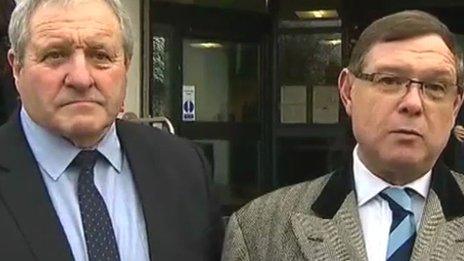Lynette White murder: Cardiff Five are victims, chief says
- Published
John Actie returns to the court where he was falsely imprisoned for the first time in 30 years
Members of the so-called "Cardiff Five" should be "recognised as victims", a senior police officer has said.
John Actie, Ronnie Actie, Stephen Miller, Tony Paris and Yusef Abdullahi spent time in prison after being falsely accused of murdering 20-year-old Lynette White in Cardiff in 1988.
Former Chief Constable of South Wales Police Matt Jukes said he was "sorry for the effect on their lives".
He was speaking on a BBC documentary about the case, A Killing In Tiger Bay.
It has been described as as one of the biggest miscarriages of justice in UK legal history.
One of the three surviving members of the Cardiff Five, John Actie, thanked Mr Jukes for speaking "brilliantly and truthfully" and said they were "the words we wanted to hear years ago".
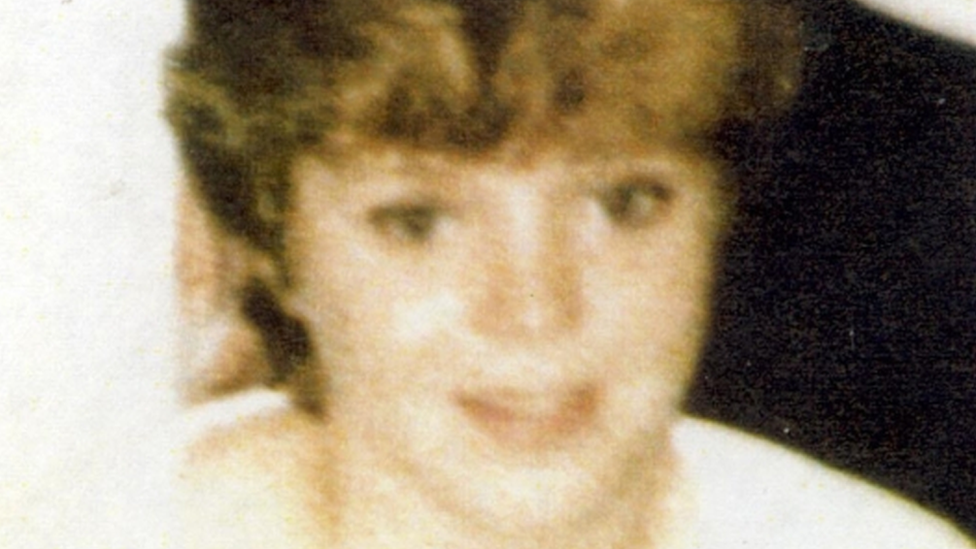
Lynette White's killer was only convicted in 2003
Speaking as the chief constable of South Wales, before moving to become an Assistant Commissioner in London, Mr Jukes said there was an "enormous responsibility of transparency" over the case.
"I joined the police force in the mid-90s, so it was after a series of miscarriages of justice, of which this case was one.
"I have to recognise that the Cardiff three and the five originally arrested as victims.
"It's a time for listening but also a time for acting, a time for the whole of the public sector and the whole of wider society to recognise that racism is still very real in our communities.
"The disadvantage experienced through the criminal justice system by black communities is real and present and stands to be addressed... and I know will remain a huge focus for South Wales Police.
"I'm sorry for the effect the actions that South Wales Police collectively and the criminal justice system had on the Cardiff three, on the five who were arrested," he said.
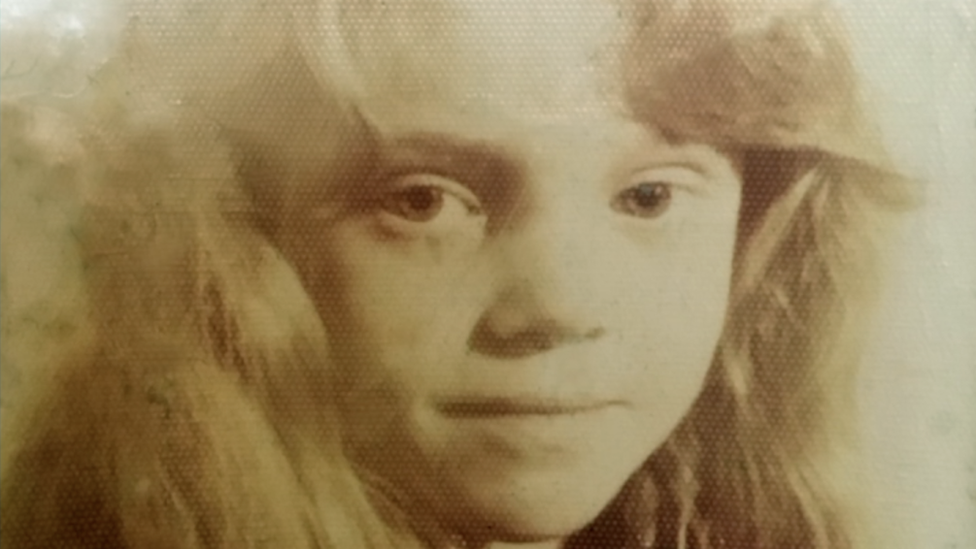
Lynette White when she was a child
Lynette White was found stabbed more than 50 times in a flat in Cardiff docklands on 14 February 1988.
Despite detectives stating they were looking for a white suspect, five black and mixed-race men were later arrested and charged with her murder.
After 19 interviews by officers, a false confession was obtained from Stephen Miller, Ms White's boyfriend.
The first trial of the five men stopped after the judge in the case died during proceedings.
After two years in custody, John and Ronnie Actie were cleared by a jury at a second trial.
But Stephen Miller, Yusef Abdullahi and Tony Paris were found guilty, sentenced to life, and became known as the Cardiff Three.
After a huge campaign, in 1992 the Court of Appeal ruled a gross miscarriage of justice had taken place.
Judge Lord Justice Taylor said that short of physical abuse, it was "hard to conceive of a more hostile and intimidatory approach by police officers, during the interview of Stephen Miller".
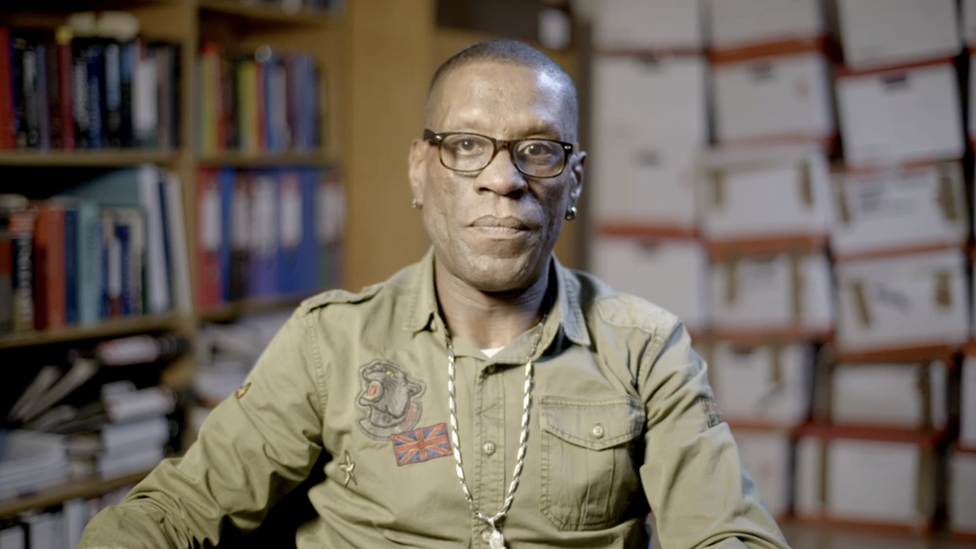
Stephen Miller says he felt like a prisoner of war
Under interrogation Stephen Miller admitted to the killing and named others as being responsible.
"Why did I accuse innocent men? That's something I have to take to my grave with me," Mr Miller told the documentary.
"I'm a 22-year-old sitting in a police station, and they put me in this room and they just started flinging things at me - allegation after allegation - I mean it was so intense.
"I was a sorry soul - I think if they'd said God was in there with me, I'd have said yes.
"I felt like a prisoner of war. They just took me off the streets, and told me I done this."

Lynette White was killed in a flat on James Street in Butetown
The real murderer, Jeffrey Gafoor, was jailed in 2003 thanks to DNA evidence, external.
In 2011 police officers involved in the original, flawed investigation were put on trial for alleged corruption. They denied the charges.
The £30m case collapsed due to missing paperwork which was said to have been shredded, although it was found just weeks after the trial ended.
A Home Office review said the investigation represented "one of the worst miscarriages of justice in the history of our criminal justice system".
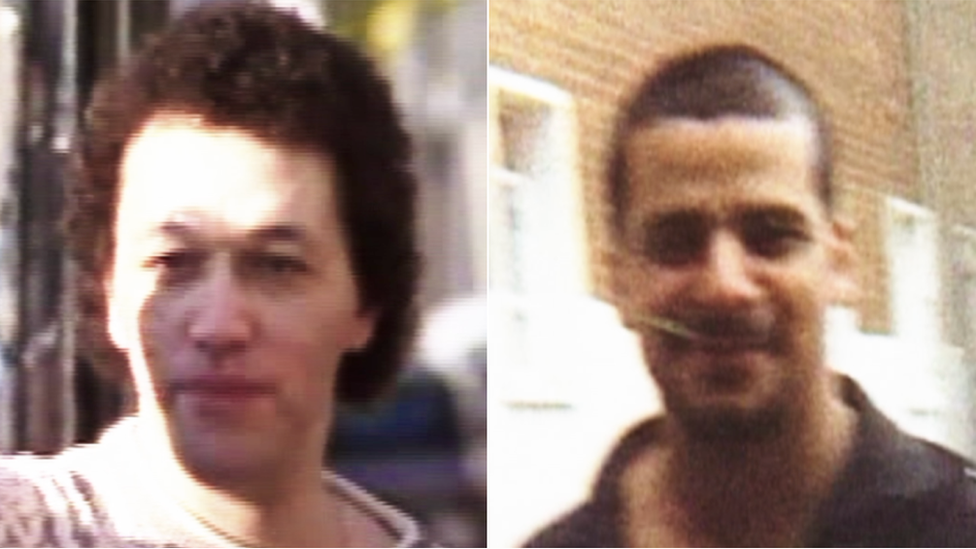
Ronnie Actie (L) and Yusef Abdullahi (R) have both died
Ronnie Actie was found dead in 2007 and friends said he struggled to cope after time in prison. Yusef Abdullahi died in 2011.
Tony Paris lost his father just weeks before he was freed by the appeal court in 1992.
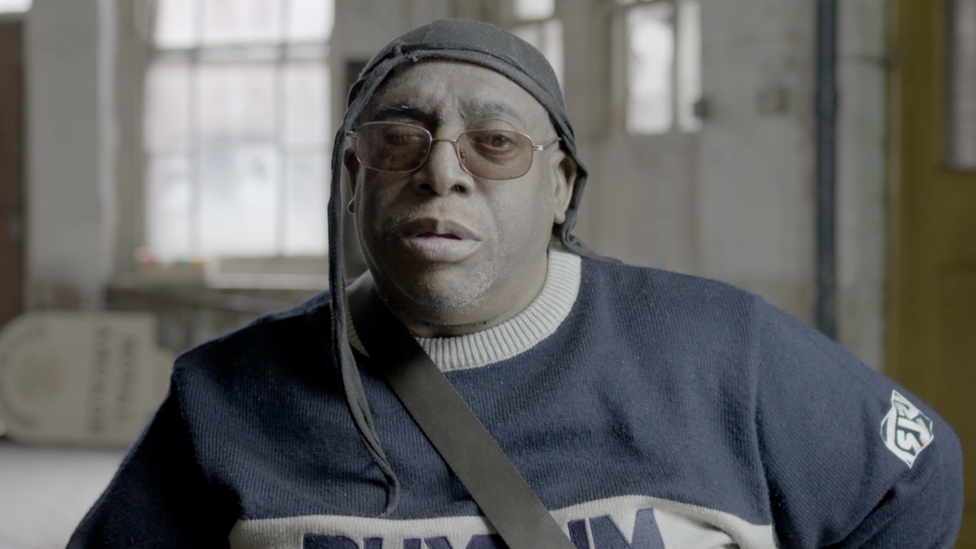
Tony Paris welcomed Matt Jukes' comments
He told the programme: "That's what killed my old man, they took his boy away, said he did something he didn't do, and we know it."
Mr Paris said he too was pleased that a senior police officer was now describing him and the four others as victims.
"It's important, 30 years down the line, because although we've had apologies before, now the whole world can see we are innocent and we are victims," he said.
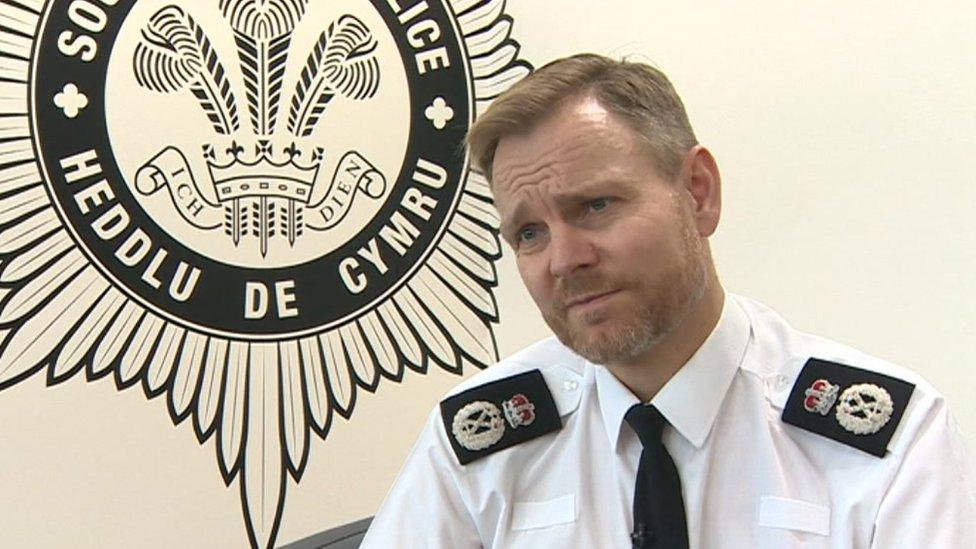
Matt Jukes was Chief Constable of South Wales Police until 2020
The police officers involved in the original investigation declined to take part in the programme.
Mr Jukes said the "question of accountability" in this case lay with "the organisation and its senior leadership".
"It is of course important to say that there were lots of other people tragically affected by this case - individuals who were involved in the investigation, individuals who were witnesses.
"The organisation, its professionalism, its candour is different now than it was.
"I think every age has its own challenges, and our expectations now about the way we conduct ourselves and our investigations are not only so very different but they're also exposed to so much more scrutiny.
"It's a real cause of sadness that Lynette's name gets used as shorthand for this case and it's easy to forget that a young woman's life was lost."

John Actie says he hopes people will understand the effects on those involved in the case
Responding to Mr Jukes' comments, John Actie said: "I really appreciate that Matt Jukes has said these things... I'd like to say thank you very much."
Mr Actie said that he hoped the documentary would show people in the UK and across the world "exactly what went down" and highlight the wide-ranging, long-term effects on those involved.
"This is something where we can go 'look - sit up and watch it' and you judge yourself.
"The truth is important - the truth will set your free - and freedom is priceless. You can't buy your freedom."
A Killing In Tiger Bay starts on 9 September at 21:00 BST on BBC One Wales, on BBC Two in the rest of UK and on BBC iPlayer

A KILLING IN TIGER BAY: The full and shocking true story
MOTHERS, MISSILES AND THE AMERICAN PRESIDENT: The story of Greenham told like never before

- Published2 June 2021
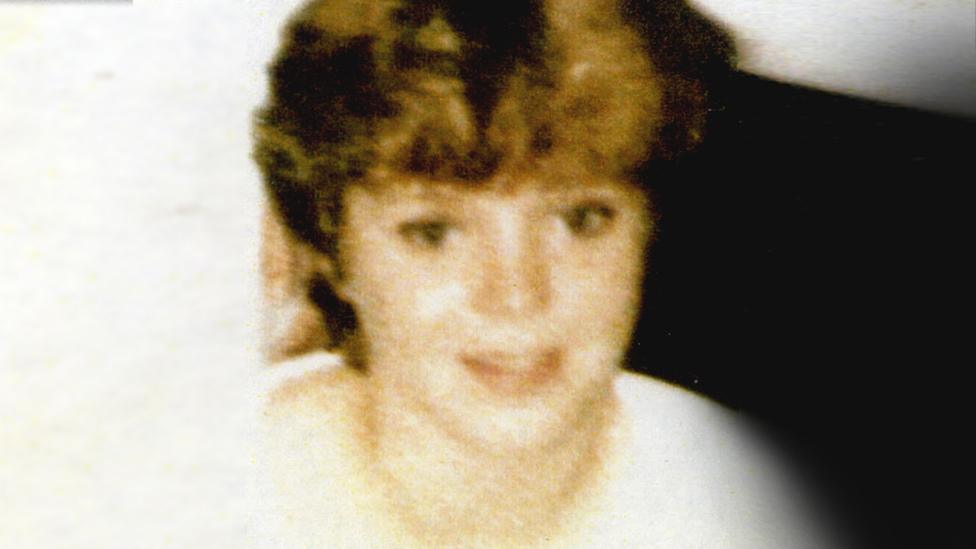
- Published29 September 2020

- Published1 December 2011
